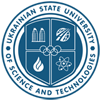Transforming Libraries into Inclusive Spaces: The Paradigm and Functions of Living Collection in Academic Library of Indonesia
DOI:
https://doi.org/10.15802/unilib/2024_317987Keywords:
academic library, inclusive library, living collection, library transformationAbstract
Objective. This research aims to understand the paradigm underlying the implementation of living collection services and the functions of living collection presented at Sunan Kalijaga State Islamic University library. Method. This research uses qualitative methods, with collecting the data through observation, interviews, and documentation. The data that has been obtained is then analyzed by performing data reduction. After that, the data is presented in the form of text, images, and tables, followed by drawing conclusions related to the research questions. Result. The research results show that the living collection at Sunan Kalijaga State Islamic University library refers to inclusive and knowledge management paradigm. The inclusive paradigm helps libraries strive for the dissemination of information to all users without exception, while the knowledge management paradigm allows libraries to manage and maintain rare information that can be accessed into the future. Living Collection as inclusive service present any functions namely educational, information, preservation, research, and recreational functions. Conclusions. By using an inclusive and knowledge management paradigm, living collections represent many functions that help libraries transforming new face to become inclusive-based libraries that can be enjoyed by all communities.
References
Algolaylat, A. S., Alodat, A. M., Muhidat, M. A., & Almakanin, H. A. (2023). Perspectives of Students with Disabilities on Inclusive Education Challenges in Higher Education: A Case Study of a Jordanian University. TEM Journal, 12(1), 406-413. doi: https://doi.org/10.18421/TEM121-50 (in English)
Aminu, M., & Perpetua, O. N. (2023). Provision of Inclusive Library Services for Effective Learning Among People Living with Disabilities in Academic Libraries: Issues and Way Forward. Global Review of Library and Information Science (GRELIS), 19(2), 1-11. Retriеved from https://www.grelis.com.ng/volume.php?id=19 (in English)
Beyene, W. M., Mekonnen, A. T., & Giannoumis, G. A. (2023). Inclusion, Access, and Accessibility of Educational Resources in Higher Education Institutions: Exploring the Ethiopian Context. International Journal of Inclusive Education, 27(1), 18-34. doi: https://doi.org/10.1080/13603116.2020.1817580 (in English)
Creswell, J. W. (2015). Penelitian Kualitatif dan Desain Riset: Memilih di Antara Lima Pendekatan [Qualitative Inquiry & Research Design: Choosing Among Five Approaches] (3rd ed.). Yogyakarta, Indonesia: Pustaka Pelajar (in Indonesian)
Green, M. (2019). Inclusive Library Service to Individuals with Mental Illnesses and Disorders. The International Journal of Information, Diversity, & Inclusion (IJIDI), 4(1), 119-126. doi: https://doi.org/10.33137/ijidi.v4i1.32500 (in English)
Gupta, A., Liu, Y., Lin, T.-C., Zhong, Q., & Suzuki, T. (2024). Listening to Diverse Voices: Inclusive Pedagogy and Culturally Responsive Teaching for Library Interactions. Reference Services Review, 52(1), 66-85. doi: https://doi.org/10.1108/RSR-04-2023-0042 (in English)
Horsfall, M. N., & Opara, V. C. (2023). Availability of Information Resources for Visually Impaired Students in University Libraries in Nigeria: A Tool for Inclusive University Education. International Journal of Knowledge Content Development & Technology, 13(4), 39-49. doi: https://doi.org/10.5865/IJKCT.2023.13.4.039 (in English)
Human Library. (n.d.). Home [Website]. Retrieved from https://humanlibrary.org/about/ (in English)
Ilako, C., Maceviciute, E., & Muwanguzi, J. B. (2020). Creating Inclusive Library Spaces for Students with Disabilities (SWDs): Perceptions and Experiences. In A. Sundqvist, G. Berget, J. Nolin, & K. I. Skjerdingstad (Eds.). Sustainable Digital Communities. iConference (Vol. 12051, pp. 487-494). Springer International Publishing. doi: https://doi.org/10.1007/978-3-030-43687-2_39 (in English)
McPhee, C., Leminen, S., Schuurman, D., Westerlund, M., & Huizingh, K. (2018). Editorial: Living Labs. Technology Innovation Management Review, 8(12), 3-6. doi: https://doi.org/10.22215/timreview/1200 (in English)
Ngulube, B. (2022). The Contribution of Case Study Research in Information Science. In Research Anthology on Innovative Research Methodologies and Utilization Across Multiple Disciplines (pp. 568-586). IGI Global Scientific Publishing. doi: https://doi.org/10.4018/978-1-6684-3881-7.ch029 (in English)
Qalyubi, S., Purwono, Septiyantono, T., Sidik, U., Tafrikhuddin, Arianto, M. S., Masruri, A., Zulaikha, SR., Hs, L., Rohmadi, D., & Laugu N. (2003). Dasar-dasar Ilmu Perpustakaan dan Informasi. Jurusan Ilmu Perpustakaan dan Informasi, (IPI) Iain Sunan Kalijaga, Yogyakarta, Indonesia (in Indonesian)
Ronning, K. (2024). Inclusive Library Education for Students with Extensive Support Needs. Culminating Projects inInformation Media, 46. Retriеved from https://repository.stcloudstate.edu/im_etds/46 (in English)
Subramaniam, M. M., & Jaeger, P. T. (2010). Modeling Inclusive Practice?: Attracting Diverse Faculty and Future Faculty to the Information Workforce. Library Trends, 59(1-2), 109-127. doi: https://doi.org/10.1353/lib.2010.a407809 (in English)
Wambui, M., Muigai, P., & Kamau, C. (2023). The Challenges and Opportunities for Providing Inclusive Library Spaces for Persons with Disabilities in Kenyan Universities. American Journal of Art and Communication, 7(5), 1-15. Retriеved from https://topjournals.org/index.php/AJAC/article/view/226 (in English)
Yulia, Y., & Sujana, J. G. (2014). Pengembangan Koleksi. Jakarta, Indonesia: Universitas Terbuka. (in Indonesian)








